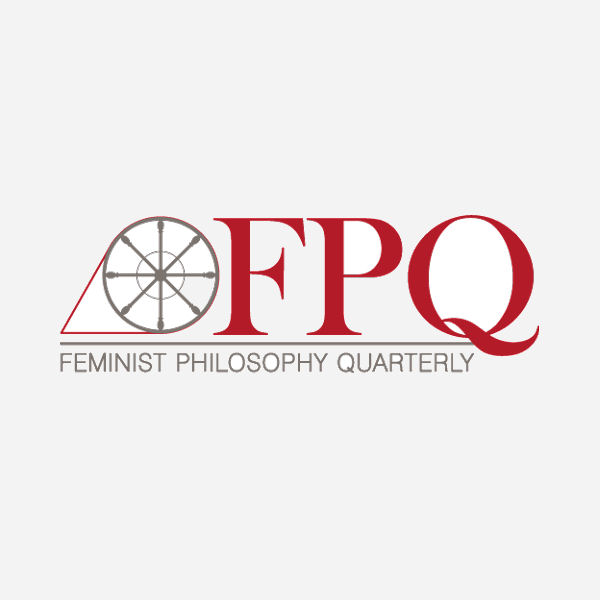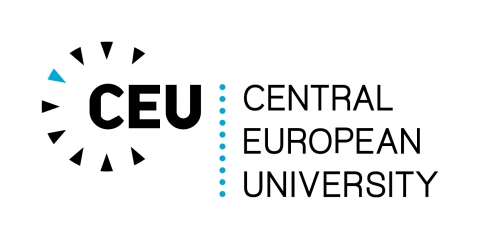-
The Politics of Marriage at LSE Forum
 Marriage is an odd mix of sex, religion, and politics. Our speakers ask what marriage is and whether there is there any distinctive moral value in it. Should the state promote it? Is it possible to have an ‘equal’ marriage, or is marriage fundamentally an oppressive institution? Should marriage be rejected in favour of civil partnerships, or something else, or perhaps nothing else?
Marriage is an odd mix of sex, religion, and politics. Our speakers ask what marriage is and whether there is there any distinctive moral value in it. Should the state promote it? Is it possible to have an ‘equal’ marriage, or is marriage fundamentally an oppressive institution? Should marriage be rejected in favour of civil partnerships, or something else, or perhaps nothing else?You can watch a video of the event and listen to the podcast here.
Speakers
Clare Chambers
Senior Lecturer in Philosophy, University of CambridgeSir Paul Coleridge
Former high court judge and Chairman, The Marriage FoundationPeter Tatchell
Activist and Director of the Peter Tatchell FoundationChair
Fellow, The Forum
Senior Lecturer in Philosophy, King’s College London -
Dress codes at work for the BBC
-
Seminar in Contemporary Political Thought
 Seminar in Contemporary Political Thought
Seminar in Contemporary Political ThoughtConvened by Dr Clare Chambers (Philosophy) and Dr Duncan Bell (POLIS)
University of CambridgeMichaelmas Term 2017
All sessions are held on Fridays at 1 – 2.30pm in the Bawden Room of Jesus College. This is in West Court, which can be accessed either via the main entrance of Jesus College or directly from Jesus Lane.
Refreshments will be served at the close of formal proceedings. There are no precirculated papers and all are welcome.
6 Oct: Tom Shakespeare, University of East Anglia: “The UN Convention on the Rights of Persons with Disabilities: making use of the stilts?”
20 Oct: Avia Pasternak and Jeff Howard, UCL: “Criminal Acccountability, Restorative Justice, and the Moral Standing of States”
3 Nov: Katrin Flikschuh, LSE: “Philosophical Racism”
17 Nov: Bernardo Zacka, University of Cambridge: “When the Rules Run Out: Informal Taxonomies at the Front Lines of Public Service”Lent Term 2018
All seminars will be held in Upper Hall, Jesus College. Please note that this is a different room from that used by the Seminar in MT. Upper Hall is in the old part of Jesus College, enter via the Porters’ Lodge.
The seminars are held on Fridays at 1 – 2.30pm, followed by refreshments. There are no pre-circulated papers and all are welcome.
**Please note also that the third Seminar this term deviates from the fortnightly pattern, to accommodate a speaker coming from overseas.**
19th January: Cecile Laborde, University of Oxford. “Liberal Egalitarianism and the Critique of Religion”
2nd February: Heather Widdows, University of Birmingham. Title TBC.
9th February (NOTE DATE): Sam Moyn, Yale University. “The Doctor’s Plot: How Philosophizing Human Rights Began”
2nd March: Herjeet Marway, University of Birmingham. “Procreative Justice and Genetic Selection for Non-Disease Traits: The Case of Fair Skin”
-
Blackwells Festival of Philosophy

 I’ll be launching and speaking about Against Marriage at Blackwell’s bookshop, Oxford on 16th November 2017, as part of the Oxford University Press Festival of Philosophy. Register for the event here.
I’ll be launching and speaking about Against Marriage at Blackwell’s bookshop, Oxford on 16th November 2017, as part of the Oxford University Press Festival of Philosophy. Register for the event here. -
Royal Society of Medicine
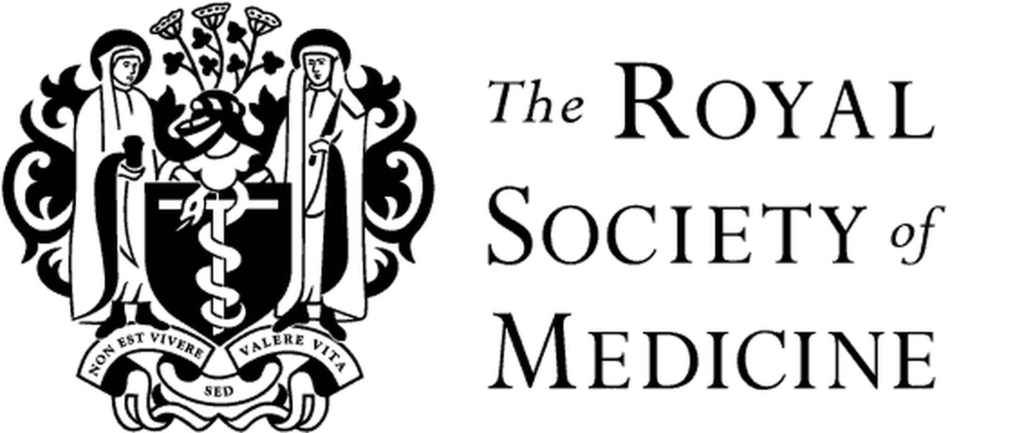
I spoke on “The ethics of cosmetic surgery” at the Royal Society of Medicine event “Changing the image of cosmetic surgery: patients before profit” in October 2017. Find details here.
-
Alumni Festival
I am speaking on “Should the State Recognise Marriage?” at the University of Cambridge Alumni Festival on 22nd September 2017. Details are here.
-
Joint Session 2017
-
Association for Social and Political Philosophy
 I was a keynote speaker for the Annual Conference of the ASPP at the University of Sheffield in June 2017, talking about my book Against Marriage. You can find details of the conference here.
I was a keynote speaker for the Annual Conference of the ASPP at the University of Sheffield in June 2017, talking about my book Against Marriage. You can find details of the conference here. -
Freedom and Autonomy Conference
-
“Time to abandon marriage?” in the TLS
 The Times Literary Supplement (TLS) published my piece “Time to abandon marriage?” as part of their Ethical Angles Series (2017). Read it here.
The Times Literary Supplement (TLS) published my piece “Time to abandon marriage?” as part of their Ethical Angles Series (2017). Read it here. -
Medicalised Genital Cutting and the Limits of Choice
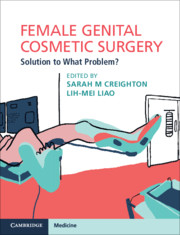 in Female Genital Cosmetic Surgery: Interdisciplinary Analysis and Solution, edited by Sarah Creighton and Lih-Mei Lao (Cambridge University Press, 2019).
in Female Genital Cosmetic Surgery: Interdisciplinary Analysis and Solution, edited by Sarah Creighton and Lih-Mei Lao (Cambridge University Press, 2019).In this chapter I challenge the idea that an appeal to choice exonerates Female Genital Cosmetic Surgery (FGCS). My argument proceeds in five stages. First, I consider the normative role that choice plays in liberal society and philosophy. Second, I note that UK law does not treat choice as adequate for accessing FGCS. Third, I consider the relationship between choice and the concept of normality. Fourth, I consider choice in the context of cosmetic surgery generally, and analyse the distinctive features of FGCS. Fifth, I consider the policy implications of my analysis.
You can find the book here.
-
Conscience and Context
In Political Emotions: Toward a Decent Public Sphere, edited by Thom Brooks (Palgrave MacMillan, forthcoming).
In The New Religious Intolerance Martha Nussbaum sets out an impassioned plea against that intolerance, which she sees as a pressing but almost entirely European problem. Although there are differences between European nations, Nussbaum argues, Europeans in general have a variety of problematic attitudes to religious diversity that are not found in the USA. These include “fear and mistrust,” inconsistency, “a concern for homogeneity that leads them to commit some errors in public argument that are troubling,” the desire that immigrants “fit in,” greater anti-Semitism than is found in the USA, and a refusal to debate, let alone embrace, “the free exercise of religion”. In place of this European foolishness “the American solution is urgently needed.” The New Religious Intolerance is thus at once a critique of the ‘European’ way of dealing with religion and a defence of the superior American way. Events since Nussbaum published NRI suggest that both Europeans and Americans have grounds for deep soul-searching and self-criticism concerning attitudes to immigration and diversity. In this paper I offer a critique not of the political implications of Nussbaum’s account, but rather of its philosophical underpinnings. My argument proceeds through analysis of her critique of a legal ban on the burqa which has been implemented in various ways in France, Belgium, and Italy
-
Ideology and Normativity
 This paper investigates the possibility of what Sally Haslanger calls ‘ideology critique’. It argues that ideology critique cannot rely on epistemological considerations alone but must be based on a normative political theory. Since ideological oppression is denied by those who suffer from it is it is not possible to identify privileged epistemological standpoints in advance.
This paper investigates the possibility of what Sally Haslanger calls ‘ideology critique’. It argues that ideology critique cannot rely on epistemological considerations alone but must be based on a normative political theory. Since ideological oppression is denied by those who suffer from it is it is not possible to identify privileged epistemological standpoints in advance.You can read the paper here and on the OUP Philosophy Festival Reading List here.
-
Ideology and Normativity
 This paper investigates the possibility of what Sally Haslanger calls “ideology critique.” It argues that ideology critique cannot rely on epistemological considerations alone but must be based on a normative political theory. Since ideological oppression is denied by those who suffer from it is it is not possible to identify privileged epistemological standpoints in advance.
This paper investigates the possibility of what Sally Haslanger calls “ideology critique.” It argues that ideology critique cannot rely on epistemological considerations alone but must be based on a normative political theory. Since ideological oppression is denied by those who suffer from it is it is not possible to identify privileged epistemological standpoints in advance. -
Judging Women: 25 Years Further Toward a Feminist Theory of the State
Feminist Political Quarterly (Vol. 3 No. 2, 2017).
The title of this paper is “Judging Women”, a phrase that can be understood in three senses. First, when is it acceptable or necessary to make judgements about what women do? Feminists may be wary of subjecting women’s choices and actions to criticism, but the paper argues that such criticism is implied by a feminist perspective on patriarchy, a perspective which is necessarily critical. Second, when can women engage in the act of judging? The paper argues that being judgmental is popularly considered a vice, but only when done by women. Feminism should insist on women’s right to judge. Third, how are we to judge who counts as a woman? The paper investigates the commonalities and contrasts between feminism and trans issues, and discusses the concepts of essentialism and transphobia. The focus throughout is on MacKinnon’s work, which offers profound, sustained, rich analysis of these questions but does not fully resolve them.
You can read the paper here.
-
Regulating Religious Marriage at CEU
-
Philosophy 24/7
 You can listen to an interview with me on “The State and Marriage” at Philosophy 24/7 here.
You can listen to an interview with me on “The State and Marriage” at Philosophy 24/7 here. -
Seminar in Contemporary Political Thought
All seminars this term will be held in JESUS COLLEGE, in the Prioress’s Room. Please note that this is NOT the same college as last term. Moreover, long-standing seminar members should not that this is NOT the usual room in Jesus College. The seminar will be signposted.As usual the seminars take place at alternate Fridays at 1pm – 2.30pm, with refreshments served at the close of formal proceedings. There is no pre-circulated paper and all are welcome.
20th Jan: Dana Mills, University of Oxford. “The Dancer of the Future from a Socialist Point of View: Eleanor Marx, Isadora Duncan, and Choreographing Socialist Feminism”
3rd Feb: Herjeet Marway, University of Birmingham. “Should we genetically select for the beauty feature of fair skin? Procreative Beneficence versus Procreative Justice.”
17th Feb: Chris Armstrong, University of Southampton. “Institutions, Growth, and Global Justice”
3rd March: David Runciman, University of Cambridge. “States, Corporations, Robots” -
Seminar in Contemporary Political Thought
 Seminar in Contemporary Political Thought
Seminar in Contemporary Political ThoughtMichaelmas Term 2016
Convenors: Dr John Filling (Philosophy) and Dr Paul Sagar (POLIS).
Seminars will be held in the Audit Room, King’s College
7th October: Dr Timothy Fowler, University of Bristol
Political Liberalism, Science, and Faith: The Case of Intelligent Design
21st October: Dr Robert Jubb, University of Reading
Civil Disobedience and the Disaggregation of Political Authority
4th November: TBC
18th November: Dr Rebecca Reilly-Cooper, Warwick University
The Doctrine of Gender Identity – A Critical Examination
-
Symposium on Kimberley Brownlee’s Social Rights
I’ll be speaking at a symposium on Kimberley Brownlee’s work on social rights at the University of Warwick in September 2016.
-
Lecture List
I regularly lecture on the Philosophy Tripos, for all Parts. Students from other Faculties are welcome. For details of this year’s Lecture List see the Faculty of Philosophy website here.
I do not provide lecture materials to students who do not attend lectures other than in exceptional circumstances.
-
Genital Autonomy Conference
 I had a profoundly moving and informative time listening and speaking at the Genital Autonomy 14th Annual Symposium on Changing Global Perceptions: Child Protection & Bodily Autonomy. The Symposium was at Keele University on 14-16 September 2016. You can find details of the Symposium here. My talk was titled “Cultural v. Cosmetic v. Clinical Surgery: Challenging the Distinction.”
I had a profoundly moving and informative time listening and speaking at the Genital Autonomy 14th Annual Symposium on Changing Global Perceptions: Child Protection & Bodily Autonomy. The Symposium was at Keele University on 14-16 September 2016. You can find details of the Symposium here. My talk was titled “Cultural v. Cosmetic v. Clinical Surgery: Challenging the Distinction.”There is a general consensus in liberal theory, practice, and law that female genital mutilation (FGM) is a violation of rights and justice that should be banned. However, there is no such consensus about male circumcision or cosmetic surgery, including labiaplasty. These practices are legal in most liberal states and there is no general critique of them in mainstream liberal theory. This talk will consider the philosophical reasons in favour of distinguishing FGM from male circumcision and labiaplasty, and find them wanting. Both cosmetic and clinical surgeries are fundamentally cultural. I argue that male circumcision and cosmetic surgery should be regulated in the same way as FGM – which means, among other things, much stricter regulations on when such surgeries can be performed on children.
-
Broadly at Vice.Com
 I provided comment and analysis for an article on the sharing economy by Sirin Kale at Broadly, titled “ ‘There was a Stranger in My Own House’: Is the Sharing Economy Safe for Women?”. You can read the article here.
I provided comment and analysis for an article on the sharing economy by Sirin Kale at Broadly, titled “ ‘There was a Stranger in My Own House’: Is the Sharing Economy Safe for Women?”. You can read the article here.Women and minorities appear more likely to experience violence and discrimination on platforms like Uber and Airbnb. How did the gig economy go so wrong?
-
99 Women for Refugee Women
 I am one of Women for Refugee Women’s 99 Women speaking out against detention for refugee women. You can see the other women here.
I am one of Women for Refugee Women’s 99 Women speaking out against detention for refugee women. You can see the other women here.We asked 99 inspiring women to write a message in support of refugee women, to reflect the 99 pregnant women who were detained in Yarl’s Wood detention centre in 2014. These women include Charlotte Church, Romola Garai, Malorie Blackman, Yasmin Kadi, Noma Dumezweni, Nimco Ali, Caitlin Moran, Bridget Christie, Baroness Valerie Amos, Yvette Cooper MP, Juliet Stevenson, Mary Beard, Sophie Walker, Anoushka Shankar, Caroline Spelman MP, Oona King, Bryony Hannah, and Caroline Lucas MP.
-
Philosophers on same-sex marriage at Daily Nous
 I am one of a panel of philosophers discussing the Supreme Court’s ruling on same-sex marriage at the Daily Nous blog. You can read it here.
I am one of a panel of philosophers discussing the Supreme Court’s ruling on same-sex marriage at the Daily Nous blog. You can read it here.On Friday, June 26th, the Supreme Court of the United States announced its ruling in Obergefell v. Hodges, holding that the Fourteenth Amendment of the United States Constitution guarantees the recognition and provision of same-sex marriage. It requires each of the 50 states in the US to issue marriage licenses to same-sex couples seeking them, and to recognize legitimate same-sex marriages performed in other jurisdictions. … The decision is a landmark in the development of the rights and liberties of gay and lesbian people in the US, and is not without its controversy, of course. Many questions have arisen about the reasoning of the majority and that of the dissenting justices, as well as the significance of the decision. To get clearer on some of these issues, [Daily Nous] asked several philosophers to contribute some brief remarks on the ruling. They are: Elizabeth Brake (Arizona State), Cheshire Calhoun (Arizona State), Clare Chambers (Cambridge), John Corvino (Wayne State), Brook Sadler (South Florida), Edward Stein(Cardozo), and Kevin Vallier (Bowling Green).
-
Seminar in Contemporary Political Thought LT 2016
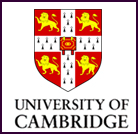 All sessions are held in the Coleridge Room of Jesus College, Cambridge at 1-2.30pm.
All sessions are held in the Coleridge Room of Jesus College, Cambridge at 1-2.30pm.15th January
Ruth Kinna, Loughborough University
Anarchist Feminism/Anarchism and Feminism: Waves, Exclusions and Intersections29th January
Catherine Lu, McGill University
Reparations and Historic Injustice12th February
Alan Finlayson, University of East Anglia
Parody and Political Speech26th February
Mihaela Mihai, University of Edinburgh
The Art of Solidarity -
Global Justice: Agency, Power and Policy
 I was delighted to be the keynote speaker at this conference in May 2016, organised by the Centre for Global Ethics at the University of Birmingham. More details of the conference here.
I was delighted to be the keynote speaker at this conference in May 2016, organised by the Centre for Global Ethics at the University of Birmingham. More details of the conference here. -
Alan Milne Memorial Address
 I gave the Alan Milne Memorial Address at Durham University in October 2016. You can find details of that series here.
I gave the Alan Milne Memorial Address at Durham University in October 2016. You can find details of that series here. -
Seminar in Contemporary Political Thought (MT 2015)
 The seminars will take place on Fridays between 1.00-2.30pm in the Coleridge Room, Jesus College. All are welcome.
The seminars will take place on Fridays between 1.00-2.30pm in the Coleridge Room, Jesus College. All are welcome.Convenors: Dr Clare Chambers (Philosophy) and Dr Duncan Bell (POLIS)
9th October
Adam Swift, Warwick University,
Family Values23rd October
Jonathan Wolff, University College London
Forms of Differential Social Inclusion6th November
Marc Stears, University of Oxford & Former Chief Speechwriter for Ed Miliband
It’s Not Just the Politics That are Missing:Realist Political Theory and the Everyday20th November
Lea Ypi, London School of Economics
Revolutionary Partisanship -
Beyond the nuclear family
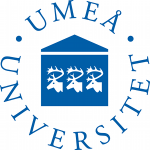 I had a fascinating time presenting at a conference on “Beyond the Nuclear Family” at Umea University in September 2015. More details here.
I had a fascinating time presenting at a conference on “Beyond the Nuclear Family” at Umea University in September 2015. More details here.
 Can your employer demand that you go to work naked? In this short
Can your employer demand that you go to work naked? In this short 

